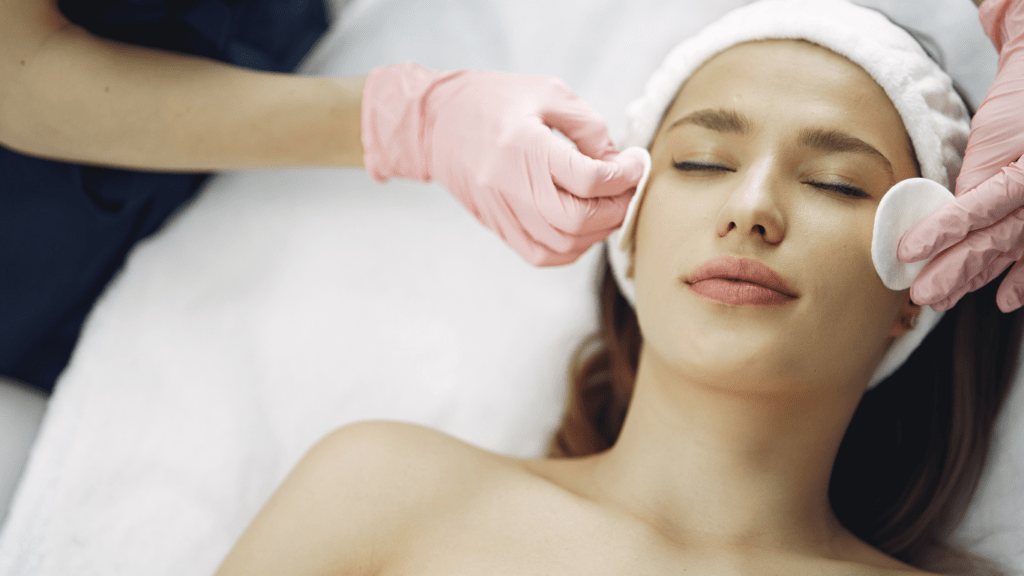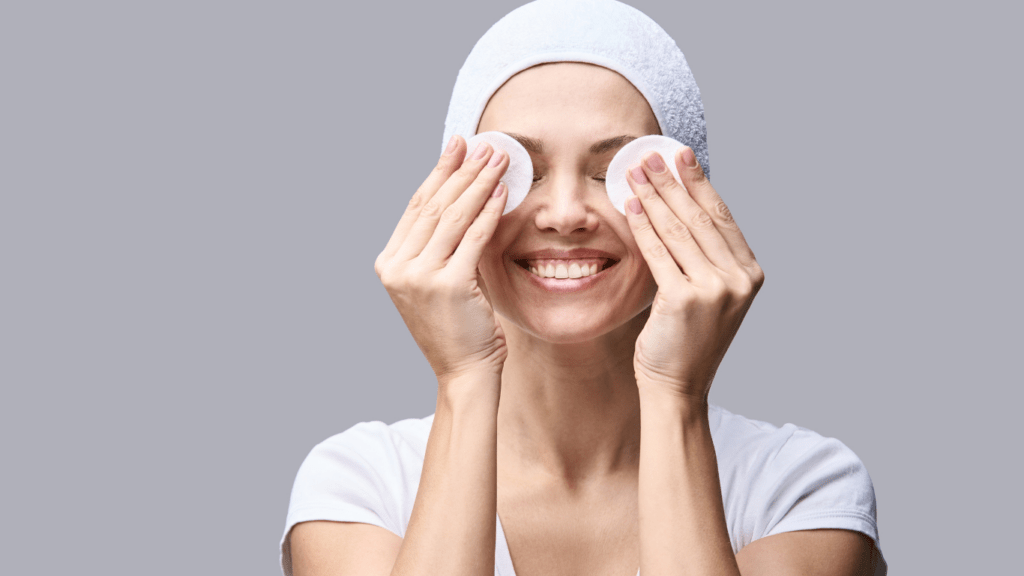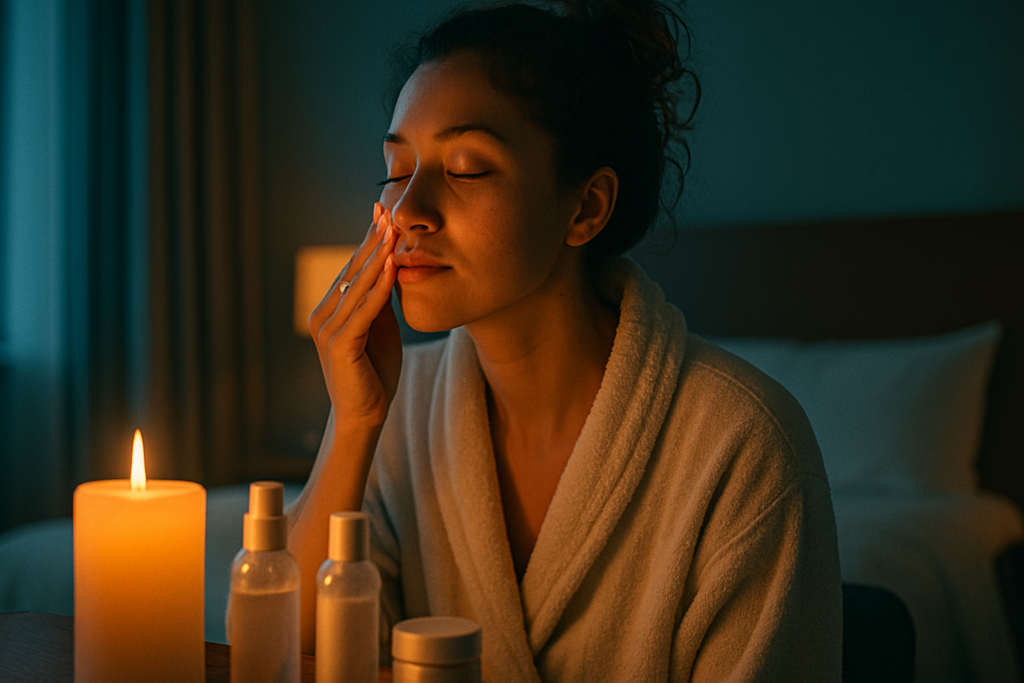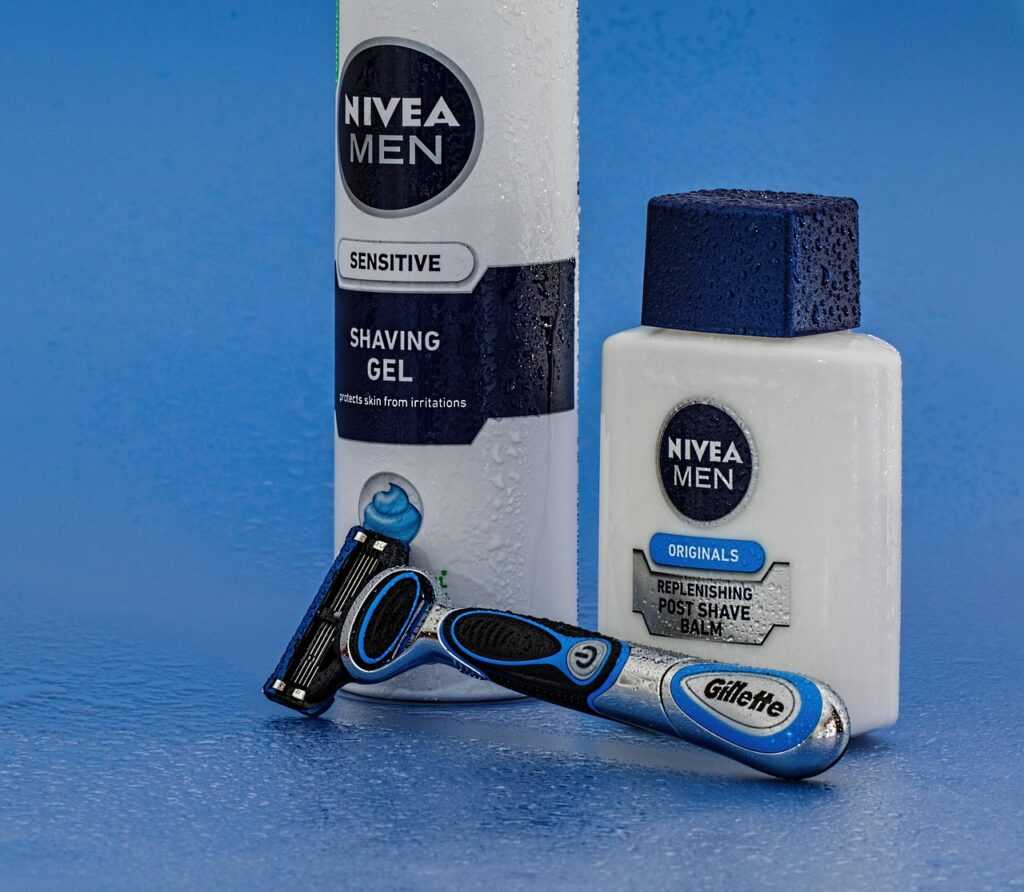Importance of a Flawless Complexion
A flawless complexion isn’t just about aesthetics. It creates a foundation for overall skin health, boosting self-esteem and confidence. Healthy skin acts as a barrier against harmful elements and plays a crucial role in maintaining the body’s hydration balance.
Skin influences first impressions during social and professional interactions. A clear, radiant face often signals vitality and attention to personal care. People tend to associate smooth skin with youth and vigor.
Investing in skincare contributes to long-term health. Proper care can prevent common issues like acne, blemishes, and signs of aging. A consistent skincare routine reduces the likelihood of developing chronic skin conditions, ensuring the skin remains resilient over time.
Achieving flawless skin comes down to understanding its broader significance. It’s more than appearance; it’s a reflection of overall wellbeing and personal upkeep.
Daily Skincare Routine
A consistent daily skincare routine forms the foundation of a flawless complexion. Following these simple yet effective steps ensures radiant, healthy skin.
Cleansing
Cleansing clears the skin of impurities and excess oil. Use a gentle cleanser suited to your skin type twice daily, morning and night. This helps prevent clogged pores, breakouts, and dullness. For oily skin, opt for a foaming cleanser; for dry skin, a cream-based cleanser works best.
Toning
Toning balances the skin’s pH and tightens pores. Apply toner using a cotton pad after cleansing. Look for alcohol-free toners with ingredients like witch hazel for oily skin or rose water for sensitive skin. Toning prepares the skin for better absorption of subsequent skincare products.
Moisturizing
Moisturizing hydrates and nourishes the skin. Choose a moisturizer based on your skin type: a lightweight, oil-free formula for oily skin or a rich, hydrating cream for dry skin. Apply moisturizer twice daily to maintain a smooth, plump complexion and strengthen the skin barrier.
Sun Protection
Sun protection prevents premature aging and reduces the risk of skin cancer. Apply broad-spectrum sunscreen with at least SPF 30 daily, regardless of the weather. Reapply every two hours if you’re outdoors. Sunscreen shields the skin from harmful UV rays, maintaining its health and appearance.
Targeted Treatments
Properly chosen treatments can address specific skin concerns to achieve a flawless complexion. Let’s delve into tailored solutions for common skin issues.
Acne Solutions
Acne manifests through various factors. I recommend using salicylic acid for its exfoliating properties, benzoyl peroxide to kill bacteria, and retinoids which promote cell turnover. For mild cases, topical treatments with 2% salicylic acid work well. In more severe instances, a dermatologist might suggest prescription-strength retinoids.
Anti-Aging Products
Using anti-aging products helps combat fine lines and wrinkles. Ingredients like retinol, hyaluronic acid, and peptides play a role in rejuvenation. I prefer retinol for its collagen-boosting properties, hyaluronic acid for its hydration ability, and peptides which enhance firmness. A night cream with 0.5% retinol is effective for most skin types.
Hyperpigmentation Treatments
Hyperpigmentation arises from sun damage or hormonal changes.
Ingredients like vitamin C, niacinamide, and alpha arbutin help lighten dark spots. I suggest a serum with 10% vitamin C for its brightening effects, niacinamide at 5% to reduce discoloration, and alpha arbutin at 2% to inhibit melanin production. Consistency is key for visible results.
Lifestyle Factors
Simple lifestyle adjustments significantly enhance skin health. Integrating these changes into everyday routines supports achieving a flawless complexion.
Diet and Hydration
A balanced diet supports skin health by providing essential nutrients. Foods rich in antioxidants, like berries and green leafy vegetables, combat free radicals. Omega-3 fatty acids found in fish and flaxseeds reduce inflammation. Water intake directly influences skin hydration; consuming at least 8 cups daily maintains optimal moisture levels. Green tea is also beneficial due to its anti-inflammatory properties.
Sleep
Quality sleep allows for efficient skin repair and regeneration. Aim for 7-9 hours of sleep each night to ensure the skin undergoes necessary healing processes. A consistent sleep schedule fosters improved skin elasticity and prevents premature aging. Elevated sleep quality boosts overall skin appearance and minimizes dark circles and puffiness.
Stress Management
Effective stress management enhances skin health by reducing hormone-induced skin issues.
- Engage in activities like yoga, meditation, or deep breathing exercises to control stress levels.
- Consistent stress reduction minimizes outbreaks of acne and other stress-related skin conditions.
- Practicing mindfulness promotes overall well-being and supports clearer skin.
Professional Help

Seeking professional help can significantly optimize your skincare routine. Experts can provide personalized advice and treatments tailored to your skin needs.
Dermatologist Visits
Dermatologist visits offer expert insights into skin health. A dermatologist conducts a thorough skin analysis, identifying specific issues like acne, rosacea, or eczema. For example, they can prescribe medications like retinoids for acne or recommend procedures for more severe conditions. They also offer guidance on daily skincare routines and products suited for your skin type.
Regular check-ups with a dermatologist help catch potential problems early. Scheduling visits every six months, or more frequently if you have chronic skin conditions, ensures continuous skin health monitoring and adjustment of treatments as needed.
Professional Treatments
Professional treatments can enhance skin texture and reduce imperfections. Options include:
- chemical peels
- laser therapy
- microdermabrasion
Each targeting different skin concerns. For instance, chemical peels remove dead skin layers, promoting regeneration and reducing fine lines.
Laser therapy addresses issues like pigmentation and scarring by penetrating skin layers to promote collagen production. Microdermabrasion gently exfoliates, improving skin texture and tone. These treatments, when done regularly, result in a more radiant and flawless complexion. Consult with a licensed specialist to determine the best treatment for your skin type and concerns.


 Jewelldane Fultz is a skincare specialist and beauty enthusiast who has spent years studying the science behind healthy skin. Known for her expertise in formulating effective skincare routines, Jewelldane emphasizes simplicity and consistency to help people achieve long-lasting results. Her in-depth knowledge of skincare ingredients makes her a trusted source for anyone looking to enhance their natural glow.
Jewelldane Fultz is a skincare specialist and beauty enthusiast who has spent years studying the science behind healthy skin. Known for her expertise in formulating effective skincare routines, Jewelldane emphasizes simplicity and consistency to help people achieve long-lasting results. Her in-depth knowledge of skincare ingredients makes her a trusted source for anyone looking to enhance their natural glow.
